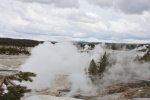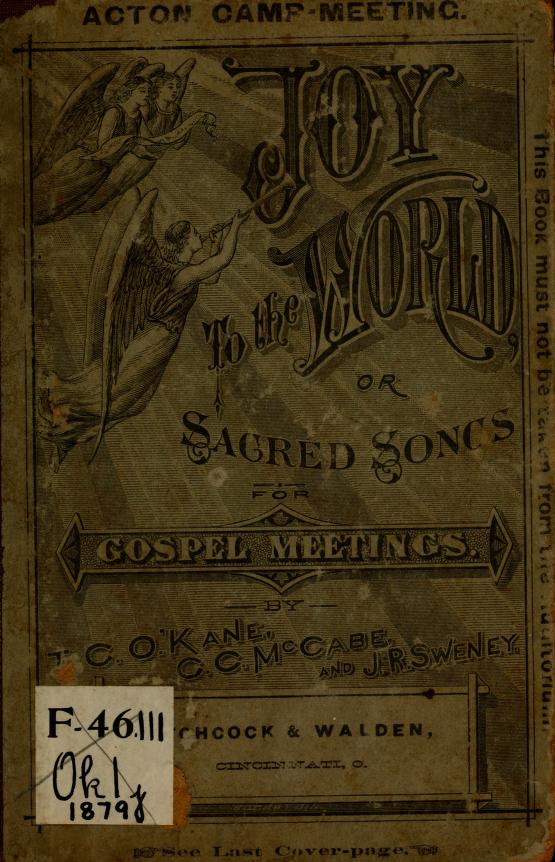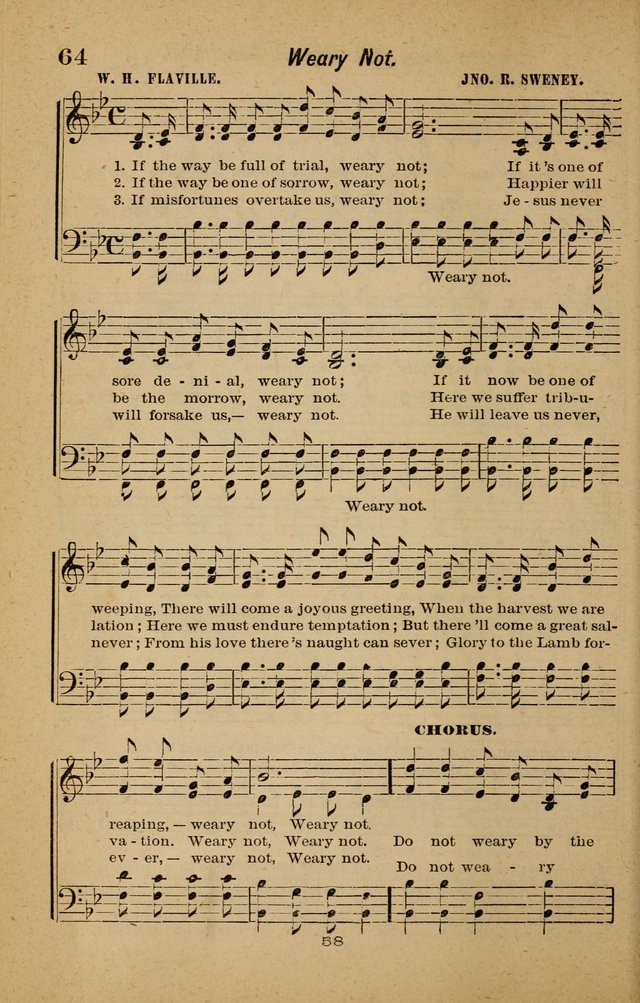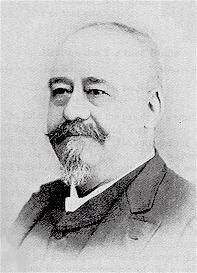| | 
“If the Way be Full of Trial” is a very old song with a very current message that is experiencing a renewal of interest. Although it has not been reprinted in large numbers of hymnals since its first publication and has not been included in any of the main English language hymnals of The Church of Jesus Christ of Latter-day Saints (LDS), it has remained a favorite of many people such as those who remember singing it from the older editions of LDS Sunday School and Children’s Songbooks, Missionary songbooks and hymnals in other languages. This inspiring hymn was brought to greater attention in August of 2012 when the Mormon Tabernacle Choir sang it for LDS Church President Thomas S. Monson at his 85th birthday celebration. It was noted as one of his favorite hymns. It was sung again at the October 2012 General Conference of the Church. Whether it is technically a hymn or a gospel song could be debated, but the answer does not detract from its message of encouragement in living a Christian life, and it has lifted many people since its first publication. The old-fashioned English usage lends charm to the text. It would probably be safe to say that most modern Americans do not use the term “weary” as a verb, and do not use the term “naught” instead of “nothing.” The author blends these terms in such a way as to make them timeless and the message of universal appeal. The verses list many of the unpleasant things we experience in mortal life: trials, denials, weeping, sorrow, tribulation, temptation, and misfortune. However, the author’s phrasing places the emphasis on the rewards of enduring until the harvest: brighter days, joyous greetings, happiness, salvation and the Savior’s love. The pinnacle of the piece is the reminder that Jesus never will forsake or leave us, and there is nothing that can separate us from his love.  It is believed that “If the Way be Full of Trial” was first published with the title “Weary Not” in the 1878 (or 1879) collection, “Joy to the World, or Sacred Songs for Gospel Meetings,” of which the composer J.R. Sweney was an editor. It appears to have first been used in gospel camp meetings of the time. It is believed that “If the Way be Full of Trial” was first published with the title “Weary Not” in the 1878 (or 1879) collection, “Joy to the World, or Sacred Songs for Gospel Meetings,” of which the composer J.R. Sweney was an editor. It appears to have first been used in gospel camp meetings of the time.
It appeared in a 1908 LDS Northern States Mission collection titled “The Songs of Zion, a Collection of Choice Songs,” and in 1909 Evan Stephens included it in a small collection he compiled titled “The YMMIA and Missionary Hymn and Tune Book,” published for the LDS Church by the Deseret News in Salt Lake City, Utah. It seems logical that this songbook, carried by missionaries to many countries could account for the reported inclusion of the piece in non-English LDS hymnbooks. It also appeared in the 1909 edition of the LDS “Deseret Sunday School Songs,” and in the 1951 LDS children’s songbook “The Children Sing.” The music in 4/4 time has a pattern that lends itself to singing or whistling along with physical activity such as family work projects. It can also be played and sung sweetly and soothingly as a balm to those who are suffering
| | 
No published biographical information is known to be available about the text author, William H. Flaville. However, deducing from internet resources currently at hand it is likely that the author is the same William H. Flaville who was born in 1829 at Chester, Pennsylvania to parents of English origin. The composer of the hymn tune for “Weary Not,” John R. Sweney, lived during the same time period, is known to have resided in the same area and was buried at Chester, Pennsylvania. Both William and John being prominent citizens it seems safe to assume that they would have known each other and been aware of mutual interests. John Sweney being a prolific composer and compiler of music and noted as being a discoverer of songwriters, it seems logical that with this William H. Flaville in his backyard, so to speak, he would have partnered with him rather than a different man with the same name somewhere else. Chester, Pennsylvania is located in Delaware County, on the Delaware River, about sixteen miles southwest of Philadelphia. The 1880 US Census lists William Flaville as living in Chester, Pennsylvania, married with two sons, and an occupation as Surveyor. William Flaville is listed in the Chester City Directory of 1891-92 as a civil engineer and as a member of the school board. He is also listed in the history of Delaware County as a Chester City surveyor. Based on a 1951 biographical sketch of William Flaville’s grandson, Chester F. Baker, who followed his footsteps as Chester city surveyor, William was a schoolteacher as well as a surveyor. An account is told that William was in love with a young lady, but her father refused to let them marry, because he did not think a teacher’s salary was sufficient support. The night of the refusal her father saw William kneeling in the snow praying in the moonlight, and relented. These accounts lend evidence that William was a man of faith and an educated man who could have produced the text of “Weary Not” as an expression of the heart although not a prolific or professional writer. The work is known to have been published in 1878 or 1879, when he was about 50 years of age. Nine known hymn texts are attributed to William H. Flaville, although “Weary Not” is believed to be the best known. William’s motivating hymn text, written over 130 years ago, still resonates with readers and singers today.
| | 
John Robson Sweney was born at West Chester, Pennsylvania in 1837. West Chester is about 17 miles northwest of Chester. His musical gift was evident at an early age and while still a boy he began to teach music in the public schools and lead Sunday school performances. At age 19 he began a serious study of music under the celebrated German teacher, Professor Bauer. John studied violin and piano and became a choir leader. He began teaching in Dover, Delaware at age 22. When the American Civil War broke out, John led the band of the Third Delaware Regiment. After the war he returned to his birthplace, West Chester, and became Professor of Music at the Pennsylvania Military Academy, and received his Bachelor and Doctor of Music degrees. He also served as music director of the Bethany Presbyterian Church for several years and was much in demand as a song leader. During his lifetime, it is said that John composed music for more than 1,000 Gospel songs, including the familiar tune for “The Lord Is My Light,” and collaborated on approximately sixty music collection publications. Nearly all the leading songwriters of the day were represented in those collections and John Sweney is credited with discovering several of them. He originally composed secular songs, but it is believed that in 1871 a spiritual crisis occurred and after that his music was primarily written for sacred texts. John concluded his productive life, at the age of sixty-two, in April of 1899 at Chester, Pennsylvania. John R. Sweney was also the composer of the hymn tune for “There Is Sunshine in My Soul Today,” which was the March 2012 Hymn of the Month. The information here is duplicated from the previous article.
If the Way be Full of Trial
If the way be full of trial, weary not; If it’s one of sore denial, weary not; If it now be one of weeping, There will come a joyous greeting, When the harvest we are reaping, weary not. Chorus: Do not weary by the way, Whatever be thy lot; There awaits a brighter day, To all, to all who weary not. If the way be one of sorrow, weary not; Happier will be the morrow, weary not. Here we suffer tribulation; Here we must endure temptation; But there’ll come a great salvation. Weary not. Chorus: Do not weary by the way, Whatever be thy lot; There awaits a brighter day, To all, to all who weary not. If misfortunes overtake us, weary not; Jesus never will forsake us, weary not. He will leave us never, never; From his love there’s naught can sever; Glory to the Lamb forever, weary not. Chorus: Do not weary by the way, Whatever be thy lot; There awaits a brighter day, To all, to all who weary not.
|